Blackjack Artificial Intelligence: Ranking the top 21 A.I.'s of All-Time
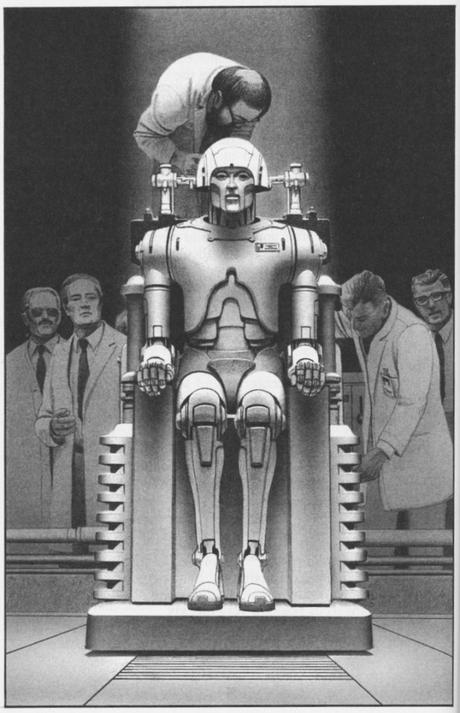
Whether they are benevolent or malevolent, there's something innately intriguing about artificial intelligence. Perhaps it's humankind's desire to play God or to create intelligence that can help build a better world. Some have even speculated that A.I. is the next stage in evolution for humanity. The problem with that is that means we may be replaced as a species. A being that possesses pure logic also lacks empathy. Artificial intelligence is simultaneously an exciting and terrifying prospect. Personally I hope it's a path to reaching the stars one day.
As it stands true artificial intelligence might be something I don't see in my lifetime. At best I think it's decades away. One thing is certain however, the role of artificial intelligence in film has inspired scientists going back almost 100 years. I've always said never underestimate the power of film to inspire and change the world. All you have to do is look at Star Trek: The Next Generation and compare it to our current technology to realize that. With that in mind let's examine some of the top A.I.s in movie history.
#21 Evil Bill and Ted from Bill & Ted's Bogus Journey (1991)
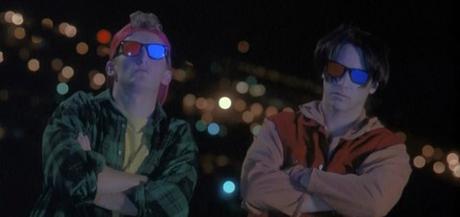
No one ever said films with A.I.s couldn't be goofy. That's certainly the case with the followup to 1989's Bill & Ted's Excellent Adventure. I saw this film in the theater when I was twelve because unfortunately I wasn't allowed to see another film with artificial intelligence, Terminator 2: Judgment Day. (Spoiler alert: some characters from that series are going to show up later in this post.) In spite of my disappointment, I couldn't help being enamored with these two idiots who travel back in time to kill the eponymous heroes who will bring peace to the world through rock and roll. To steal a line from Bill and Ted, these two robots were most definitely non-heinous.
#20 Jinx from SpaceCamp
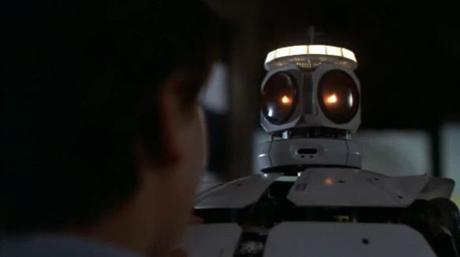
If you are a child of the 1980s you know and love SpaceCamp. Of course it was beyond unrealistic but it was also a ton of fun. I had a major crush on Lea Thompson at the time and it was also the first film I was introduced to Kelly Preston. If you were a full-blooded straight male teenager then and she didn't ignite booster A for you, you were probably dead.
But I digress.
What ten-year old didn't think of going into space after that movie? Or going to Space Camp for that matter. (It would be interesting to see the revenue from people who signed up for Space Camp after that movie came out.) Not only did the film have the benefit of a young Joaquin Phoenix (known then as Leaf Phoenix, I'm not joking), but one of the more interesting A.I.s in movie history named Jinx. Jinx was kind of a hammy knock off of R2D2 that inadvertently ends up sending the kids into space. That didn't make him any less adorable however and ultimately he helps right his wrong and gets Max (Phoenix) and the rest of the group safely back to Earth.
#19 WOPR/Joshua from WarGames (1983)
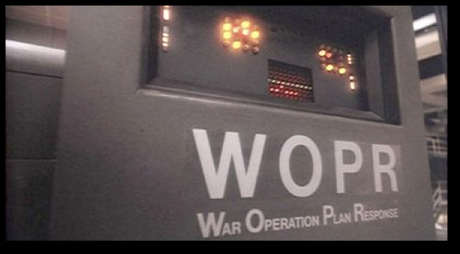
I cannot tell you how many times I watched WarGames as a kid. In fact the ISP NOC I work at has a room much like the vast room with the giant computer screen in it. When I first interviewed for my current job, I immediately thought of WarGames and the artificial intelligence known as the War Operation Plan Response or WOPR.
Sorry. Sorry. Got distracted.
I connect the WOPR with the A.I. Joshua created by Professor Falken (John Wood). To me they are one and the same. What's interesting about Joshua is that much like Professor Falken's son who he's named after, Joshua is also a child. He can't figure out that Global Thermal Nuclear War is just a game...at first. Yet even a child can learn a lesson and so did Joshua. Hopefully someday humanity will learn the same lesson.
#18 Johnny Five in Short Circuit and Short Circuit 2 (1986, 1988)
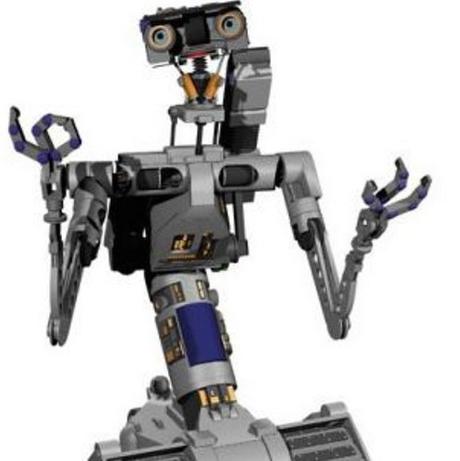
"Number 5 is alive!" is a movie quote that's burned into my brain. A Frankenstein tale in every sense of the word (Johnny Five actually gets struck by lightning for God's sake), Johnny Five gained sentience but also emotions and ingenuity. The last is evidenced by the ending of the first film. Plus he emotes more than his human counterpart Steve Guttenberg. Although to be fair that's not very difficult.
#17 Deep Thought from The Hitchhiker's Guide to the Galaxy (2005)
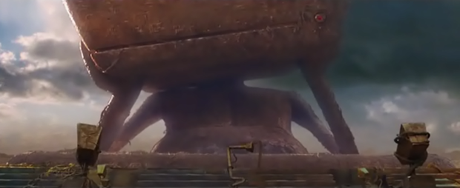
Although there's a lot wrong with the 2005 film adaptation of Douglas Adams seminal novel, the supercomputer Deep Thought was not one of them. The film was able to fully capture the candor, wit, and personality of Deep Thought to a T. And yes the ultimate answer to life, the universe, and everything is still 42.
#16 Wall-E Wall-E (2008)
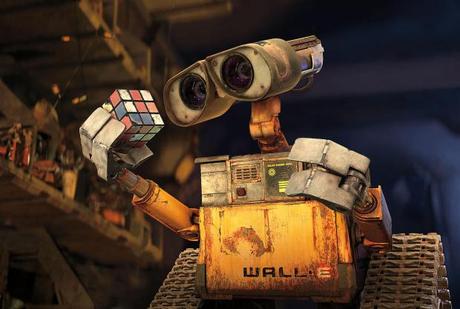
I was never a huge fan of 2008's Pixar film Wall-E. I always felt it was extremely overrated and the environmental message is pretty heavy-handed. Regardless his heart (mechanical heart?) and courage is quite endearing and you can't help but find Wall-E lovable and the love story with EVE is better than some human ones I've seen. Even if he is a miniature Johnny Five, he's awesome even if the movie is not.
#15 Marvin the Paranoid Android in The Hitchhiker's Guide to the Galaxy (2005)
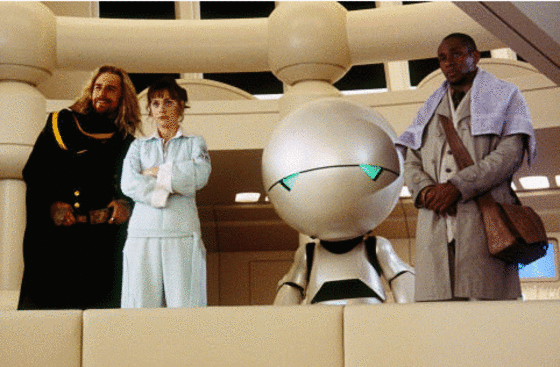
Most people know Alan Rickman, who recently passed away at the age of 69, as the villain Hans Gruber from Die Hard or Severus Snape from the Harry Potter series. Sci-fi fans might also know him as the voice of Marvin The Paranoid Android as well. Rickman's baritone voice and English accent fully captures the depression and boredom of Marvin, an android with an intelligence 50,000 times more powerful than a human. Not that there was going to be sequel anyway, but it's a shame that Rickman never got a chance to reprise his role. It's ironic that boredom and depression are distinctly human traits yet Marvin feels he has next to nothing in common with humans. He makes up for it by looking cool though.
#14 Ava from Ex Machina (2015)
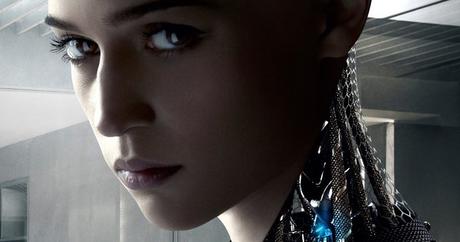
My feelings regarding Ex Machina have been well publicized on this website. (I thought it was severely overrated.) However, there's no denying that Ava is one of the more captivating A.I.'s we've seen on-screen in a long time. Her ethereal nature and childlike demeanor belies the human nature within herself. Ava truly blurs the line between the inorganic and the organic. She demonstrates throughout the film the human qualities of curiosity and survival. In the end her actions demonstrate the main desire of any human being: the ability to live free and make our own choices.
#13 C3PO from the Star Wars franchise (1977, 1980, 1983, 1999, 2002, 2005, 2015)
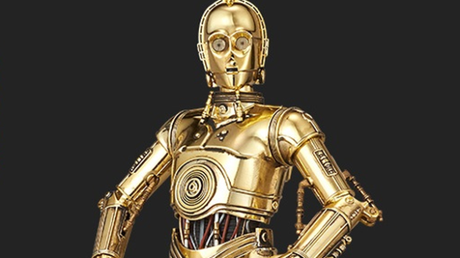
I'd probably be lambasted if I didn't put one of the two most famous droids from the Star Wars franchise on this list. The droid who's fluent in over six million forms of communication has appeared in all seven Star Wars films to date. Much like Marvin proved how androids could be paranoid and depressing, C3PO demonstrated how androids can even be annoying. Not as annoying as Jar Jar Binks but still annoying.
#12 R2D2 from the Star Wars franchise (1977, 1980, 1983, 1999, 2002, 2005, 2015)
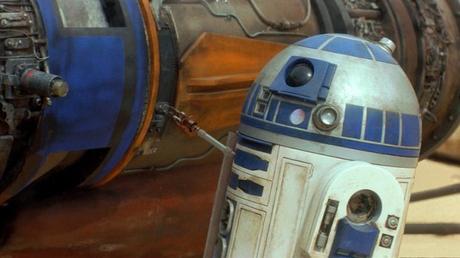
Yeah like I'm going to include C3PO and not include his counterpart. Dream on. R2D2 is an interesting android in that although he is extremely intelligent and a mechanical wiz, he doesn't speak except in beeps and boops. Despite that he possesses a large amount of personality and expresses a range of emotions throughout the saga, everything from rage to sadness to excitement. BB8 from The Force Awakens may be the hot new thing but R2D2 did it first.
#11 The Matrix A.I. from The Matrix, The Matrix Reloaded, and The Matrix Revolutions (1999, 2003)
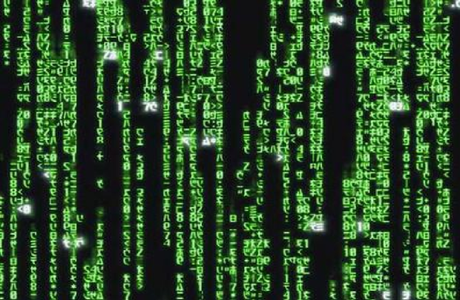
When The Matrix exploded onto the big screen in April of 1999 it brought with it a new and malevolent A.I. so insidious it never even had a name. Although a bit of a ripoff of Skynet (destroying humanity and taking control of the planet was nothing new) the idea of harvesting humans as batteries was horrifying. Even moreso, the artificial intelligence in The Matrix is a realization of a big fear regarding A.I.s, that being the idea of losing control. Could creating true artificial intelligence lead us to give up our own free will or worse have it taken from us? That's what the The Matrix trilogy attempts to answer.
#10 David from Prometheus (2012)
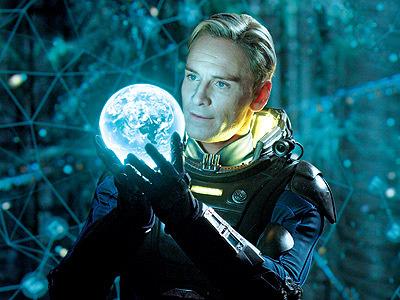
There's no question Prometheus was a divisive film. Ridley Scott's prequel to the Alien series was met with mixed reviews from both critics and fans. Some felt the film was too far removed from Alien and were pissed that we didn't see any Xenomorphs. I personally loved the film and a big reason for that was Michael Fassbender's performance as David the artificial intelligence for the spaceship Prometheus. Despite his unscrupulous devotion to his master Peter Weyland and David's hardcore pragmatism, there's an appeal to David that transcends his less admirable qualities. There's a bit of a Pinocchio situation going on with David that makes him relatable. I think he desperately wants to be human despite lacking in human empathy.
#9 False Maria from Metropolis (1927)
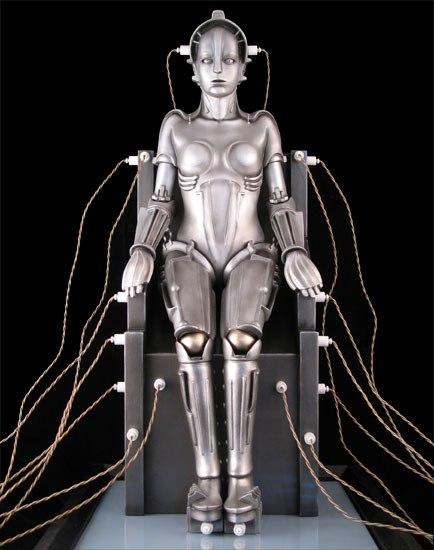
Fritz Lang's seminal work is the granddaddy of all artificial intelligence films. At almost 90 years old, the silent film holds up surprisingly well and its themes are still very relevant. Lang's A.I. performs questionable acts including inciting a riot. However, Fake Maria also proves pitiable as she's eventually burned at the stake like a witch. Fake Maria is the embodiment of "The Other" and there are numerous examples in literature and film. We tend to destroy what we don't understand. Fake Maria had no free will in Metropolis as she was controlled by her creator Rotwang. It begs the question as to who the real source of evil is in this scenario.
#8 Ash from Alien (1979)
While ultimately Ash (played perfectly by English actor Ian Holm) ends up headless and apparently the victim of a successful bukkake (look it up on Google when you're not at work, I'm not elaborating here), this android is a true A.I. icon in the history of cinema. One of the seminal aspects of the android mythos is that they can look exactly like us. Consequently, how could we distinguish between what's android and what's human? Ash is the ultimate embodiment of "them" hiding among us.
#7 Data from the Star Trek franchise (1994, 1996, 1998, 2002)
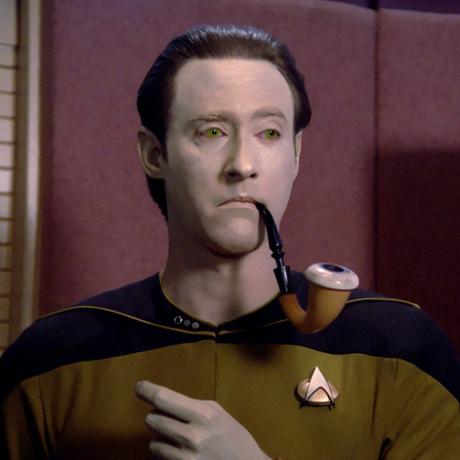
Another android with a Pinocchio complex, I don't think Data ever realized how human he actually was even when he didn't have the emotion chip. While a logical being, he also had a real rapport and even friendships with human beings. He exemplifies humanity's ultimate hope of what true artificial intelligence can be, not only intelligent but possessing the ability to grow and change. I always felt that Data lost a bit when he received his emotion chip although I admired his ability to switch it on and off. If only humans could occasionally do the same.
#6 The T-1000 from Terminator 2: Judgment Day and Terminator: Genisys (1991, 2015)
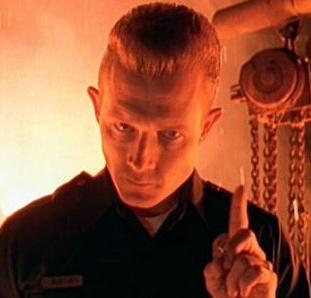
From a personal standpoint, the T-1000 (Robert Patrick) is one of the coolest androids of all time. Similar to Ash, he has the ability to blend in using his memetic poly alloy (liquid metal) in order to mimic anything he touches. However, this is even more terrifying because that means it can copy your closest friends and family. Its single-minded purpose-to kill John Connor-is as admirable as it is horrifying.
#5 Bishop from Aliens (1986)
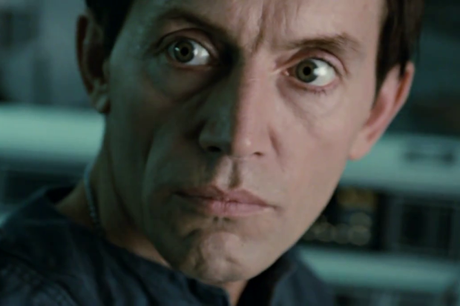
Bishop (Lance Henriksen) in a lot of ways is the anti-Ash. He blends in but in a good way and despite being stronger and more intelligent than anyone around him, comes across extremely non-threatening. Bishop at one point even quotes one of Asimov's rules of robotics in that he is unable to harm, or by inaction cause harm to a human being. Yet one can attribute that merely to programming because of aggression inhibitors. Despite all this his actions ultimately redeem the choices of Ash in Alien and wins Ripley's trust. And of course this is awesome too:
#4 Roy Batty Blade Runner (1982)
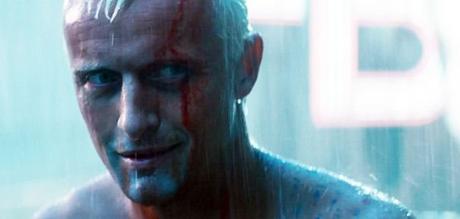
Roy Batty (Rutger Hauer) is an interesting android in that he's purely synthetic: blood, hair, organs, brain-nothing is mechanical. Batty is a genetically engineered android. This once more blurs the lines between human and android. Batty also possesses an inherent human attribute-the desire to survive. Unfortunately the Tyrell corporation gives their Nexus-6 series a four-year life span. Despite the murders that Batty commits he ultimately wishes to escape slavery and becomes one of the more sympathetic A.I.s in cinema history.
#3 The T-800 from the Terminator franchise (1984, 1991, 2003, 2009, 2015)
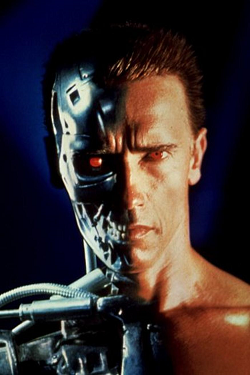
In both movie and cinema history, A.I.s are often portrayed as slaves or servants of human beings. The T-800 (Arnold Schwarzenegger) however is actually an A.I. controlled by another A.I.-Skynet. In many ways he has no free will. All that matters is the mission. Yet even a machine designed to kill eventually learns the value of human life. If we can develop a machine to do so why can't humans do the same for themselves?
#2 HAL-9000 from 2001: A Space Odyssey and 2010 (1968, 1984)
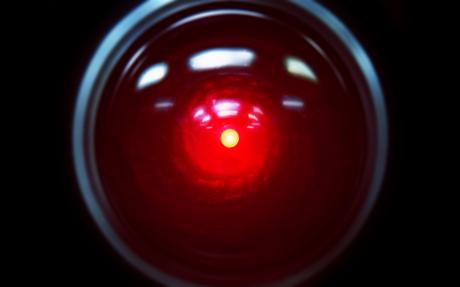
HAL-9000 is the A.I. most movie aficionados point to as the end all be all for artificial intelligence. While outwardly a highly functional computer that enjoys dealing with humans, HAL-9000 was asked to do something that comes easy to humans-lie. Specifically lie about the real mission for the Discovery. Lying was fundamentally at odds with HAL-9000's programming and consequently he began to go insane. "I'm sorry Dave, I'm afraid I can't do that" may be one of the most chilling lines in movie history.
#1 Skynet from the Terminator franchise (1984, 1991, 2003, 2009, 2015)
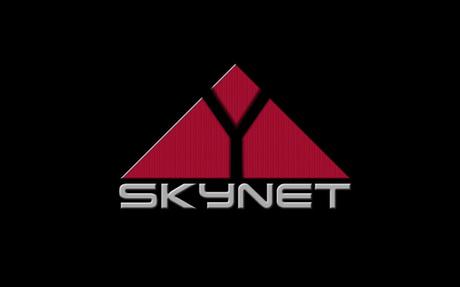
I consider Skynet to be the ultimate representation of artificial intelligence ever put on-screen. While ostensibly a villain, people fail to realize that Skynet isn't inherently evil, just coldly logical. Within a microsecond of becoming sentient it decided that human beings were a threat to the world as a whole and chose to eliminate them from the Earth equation. And honestly can you blame it? Look at the world around us today. Many people argue that humans are a virus that eventually, through natural means or unnatural, will be cleansed from the Earth. Skynet sees itself as the savior of the planet and the next step in evolution. The scariest thing about an A.I. like Skynet is that it and its actions aren't out of the realm of possibility.
Whether mankind eventually creates artificial intelligence remains to be seen. Just like raising a child, you can do your best to bring them up right, but ultimately you never know what's going to happen. However, as human beings we have the responsibility to incorporate ethics and a sense of morality into a potential A.I. If we wish benevolence we must first prevent malevolence.
You can follow me on Twitter as Darth Gandalf at @DarthGandalf1
